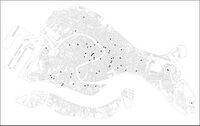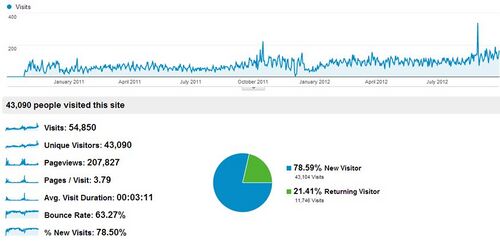Main Page: Difference between revisions
No edit summary |
No edit summary |
||
| Line 89: | Line 89: | ||
Learn more by checking out the [[Help:Contents|Help]] section! | Learn more by checking out the [[Help:Contents|Help]] section! | ||
<p> | <p> | ||
Want to '''contribute'''? | Want to '''contribute'''? Start creating articles using the [[Article wizard/subject:article wizard]]. </div> | ||
|} | |} | ||
Revision as of 13:53, 7 December 2012
Venipedia is currently under reconstruction. The site will be restored to over 4,000 pages by December 15th, 2012. Please continue to check back for updates! |

|
What is Venipedia?Venipedia is a wiki-based website dedicated to the study of the city of Venice, Italy. It is intended as a repository for unique information and data primarily collected by the Venice Project Center at Worcester Polytechnic Institute. With decades of projects dedicated to the study of Venetian architecture, art, bridges, canals, churches, ecosystems, infrastructure, tourism, transportation, and more, we are now releasing our data to the world through this site. There are already many Venetian resources on the internet, including both the English and Italian Wikipedias and various Italian-language sites. While these resources are adequate for some purposes, there are also some problems associated with these sources. For example, Wikipedia is a general-knowledge encyclopedia that provides neither detailed information nor concrete data. This website aims to fill the gap of of an English-language, data-driven website about Venice. Please check back regularly for updates. |
Featured Article: CrossesThis page is an overview of all the crosses in Venice.For a typical cross, see Cross.
Statistics
| ||||||||||||||
Analytics at a glance...Total Number of Pages 27,215 Most Popular Pages For more statistics click here.
|
Did you knowInsert Facts Here. |
New to Wiki?Learn more by checking out the Help section! Want to contribute? Start creating articles using the Article wizard/subject:article wizard. |
Contribute! |


